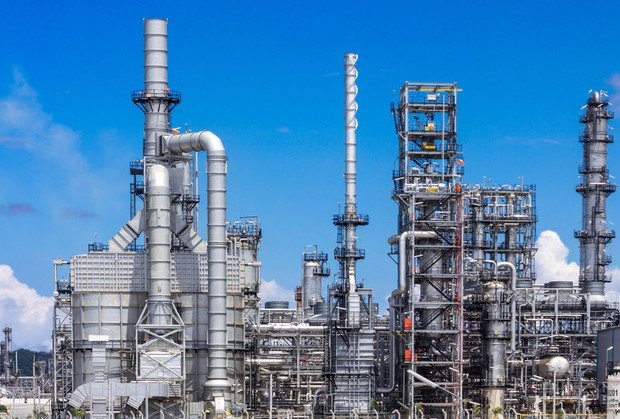American companies aren’t just dipping their toes in Egypt—they’re already knee-deep, especially in oil and gas. Now, the wind is shifting toward renewables, chemicals, and consumer markets.
The total value of U.S. assets in Egypt has surged to $25 billion, with the petroleum industry holding the lion’s share. But that’s not the whole picture. In a recent interview, Omar Mehanna, head of the Egyptian-American Business Council, made it clear—this isn’t a one-off story. It’s a decades-long playbook that U.S. firms are still following, with fresh chapters now being written.
Oil Dominates, But Diversification Is on the Table
For now, it’s still mostly about oil.
American energy giants like ExxonMobil and Chevron have long been active in Egypt’s petroleum sector, contributing significantly to the $25 billion total Mehanna mentioned. These operations include exploration, drilling, refining, and exports from Egypt’s growing offshore reserves.
Egypt’s strategic Suez Canal and proximity to Europe only sweeten the deal. And the government’s deregulation push in recent years has made the environment more appealing, especially for foreign players who value predictability over bureaucracy.
But here’s where things start to pivot.
Mehanna noted a “growing interest” from U.S. companies in sectors like clean energy, consumer products, and industrial chemicals. While he didn’t name names, insiders point to moves by firms like General Electric and Honeywell in renewables, as well as increased visibility from food and beverage conglomerates sniffing around Cairo and Alexandria.

And that’s not just PR talk. Some firms are reportedly in talks for major solar and green hydrogen projects, as Egypt continues to position itself as an African energy hub—not just for oil, but for what comes next.
Decades-Long Presence, Fresh Momentum
The U.S.-Egypt business relationship isn’t something that popped up overnight.
It’s been nurtured through trade agreements, multilateral partnerships, and quite frankly, a lot of conference room coffee over the years. U.S. companies have had boots on Egyptian soil for decades—some even since the Sadat era—and that legacy is still paying off.
-
The Qualified Industrial Zones (QIZ) agreement, signed in 2004, allows Egyptian exports with a small percentage of Israeli input to enter the U.S. tariff-free.
-
Major American firms like Apache Corporation have invested heavily in Egypt’s oilfields since the early 1990s.
-
FMCG brands such as Procter & Gamble and PepsiCo have steadily expanded operations over the past 20 years.
So this latest wave of capital isn’t a brand new beginning—it’s more like picking up speed after a long haul.
Still, the fact that these investments continue during a period of geopolitical tension and economic uncertainty says something. Companies are betting that Egypt will remain a relative safe harbor.
What’s Driving the Confidence?
There’s no single reason U.S. investors are bullish on Egypt, but a few stand out.
First, stability matters. Despite Egypt’s economic hurdles—currency devaluation, inflation, and IMF conditionalities—it remains one of the region’s most stable countries in terms of security and governance.
Second, location. Egypt isn’t just a market of 110 million people. It’s also a logistics powerhouse thanks to the Suez Canal and its place at the crossroads of Africa, the Middle East, and Europe.
“Most, if not all, U.S. companies operating in Egypt are achieving good results,” Mehanna told CNBC Arabia. That’s no small claim, and it’s likely the best motivator for others to follow.
One sentence just to breathe.
Finally, there’s alignment on green energy. Egypt has made public commitments to decarbonize its economy, and that gels with ESG goals of major U.S. investors. For companies under pressure to meet net-zero targets, Egypt’s solar and wind corridors offer attractive—and profitable—solutions.
Snapshot of U.S. Sectoral Investment in Egypt
While petroleum is clearly leading the charge, here’s a quick snapshot showing how U.S. investment is beginning to spread:
| Sector | U.S. Involvement Level | Recent Activity |
|---|---|---|
| Petroleum | High | Exploration, refining, export deals |
| Renewable Energy | Medium and rising | Solar, wind, green hydrogen talks |
| Consumer Goods | Moderate | Expansion of FMCG production lines |
| Chemicals | Moderate | Entry talks by specialty chemical firms |
| Tech & Services | Low but emerging | Interest in digital infrastructure |
This shift toward a broader base is expected to continue through 2026, especially if Egypt maintains its reform track under IMF supervision.
Egypt’s Policy Playbook Is Helping
It’s not just that companies want in—it’s that Egypt is opening the door.
Over the past few years, Egypt has implemented a raft of economic reforms. The floating of the pound, subsidy cuts, and IMF-backed policies have helped stabilize the macro picture. The government’s efforts to streamline foreign direct investment approvals have also had an impact.
There’s also a shift in attitude. Bureaucracy is still a problem, sure—but it’s not the brick wall it once was.
One sentence here, again.
Egypt’s sovereign wealth fund has also been instrumental in co-financing energy projects and inviting private players to invest in strategic sectors. This proactive stance is catching the eye of U.S. investors tired of red tape in other emerging markets.
So, What Happens Next?
That’s the $25 billion question, isn’t it?
If oil prices remain high and Egypt keeps its reform foot on the gas, U.S. investments could cross $30 billion by 2026. But it’s not just about raw numbers—it’s about momentum, perception, and political will.
The fact that Mehanna, a longtime business liaison, is making public statements about renewed interest from American companies means something’s brewing.
It’s not all rosy, though. Inflation, foreign exchange shortages, and regional instability still cast shadows. But for now, the appetite’s there. And the table’s being set for a bigger feast.
